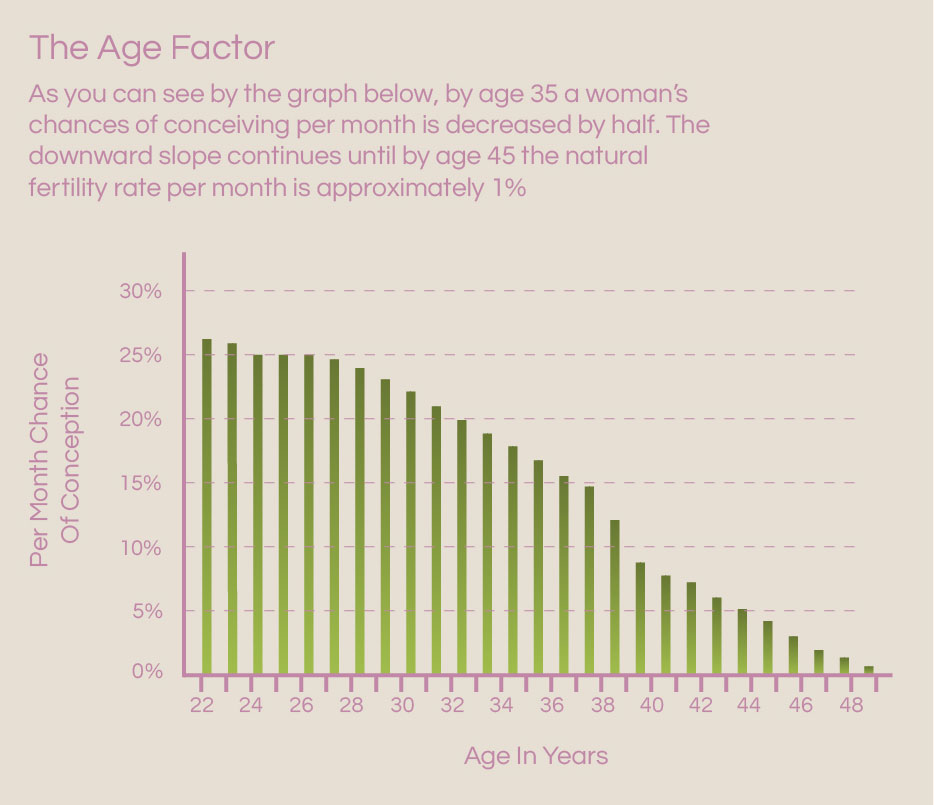Age Related Infertility and our Biological Clocks
Age related infertility occurs because women are born with all the eggs they will ever have, unlike men who typically make new sperm throughout their life. Each month many eggs begin to mature, only one ovulates and the others undergo a process called atresia (degeneration). This process occurs in intrauterine life, before puberty, and during a woman’s reproductive years even while pregnant or on oral contraceptives.
This progressive loss of eggs over a lifespan results in low egg numbers that result in lower pregnancy rates beginning usually in the 30’s and becoming extreme in the 40’s. Along with egg quantity, egg quality also decreases over time. As eggs age, they become less able to fertilize normally and implant and are more likely to result in a pregnancy that miscarries. In addition, for a variety of reasons, this process is accelerated in some women whose egg number or quality is low at a much younger age.
We think it is important to emphasize that this process of egg loss happens at a predictable and steady rate even if a woman takes good care of her health and looks young physically.
Both egg quantity and quality determine a woman’s ability to conceive and both are influenced by age.
Although the average age of menopause (no eggs remaining) is about 51 y.o., the decrease in the ability to conceive due to low egg number and poor egg quality occurs long before, usually beginning in the 30’s and becoming more pronounced in the early 40s. Women in their mid to late 40’s rarely have a spontaneous pregnancy and if so, one in three will miscarry. It is due to this sense of urgency that women 35 years of age or older should consider seeking an infertility evaluation as soon as they suspect a difficulty becoming pregnant.
If a woman’s egg quality or egg number is lower than expected for her age, there may be a discoverable cause.
Factors that can decrease ovarian function include:
- Endometriosis
- Severe pelvic adhesions
- Previous chemotherapy or radiation
- History of smoking
- Ovarian surgery or removal of a portion or all of an ovary
- Genetics (ex. Turners syndrome).
However, it also can occur in women without these predisposing factors. The cause of an early loss of eggs in some women is sometimes not clear, but is thought to be due to genetic factors with or without a family history of early menopause.


